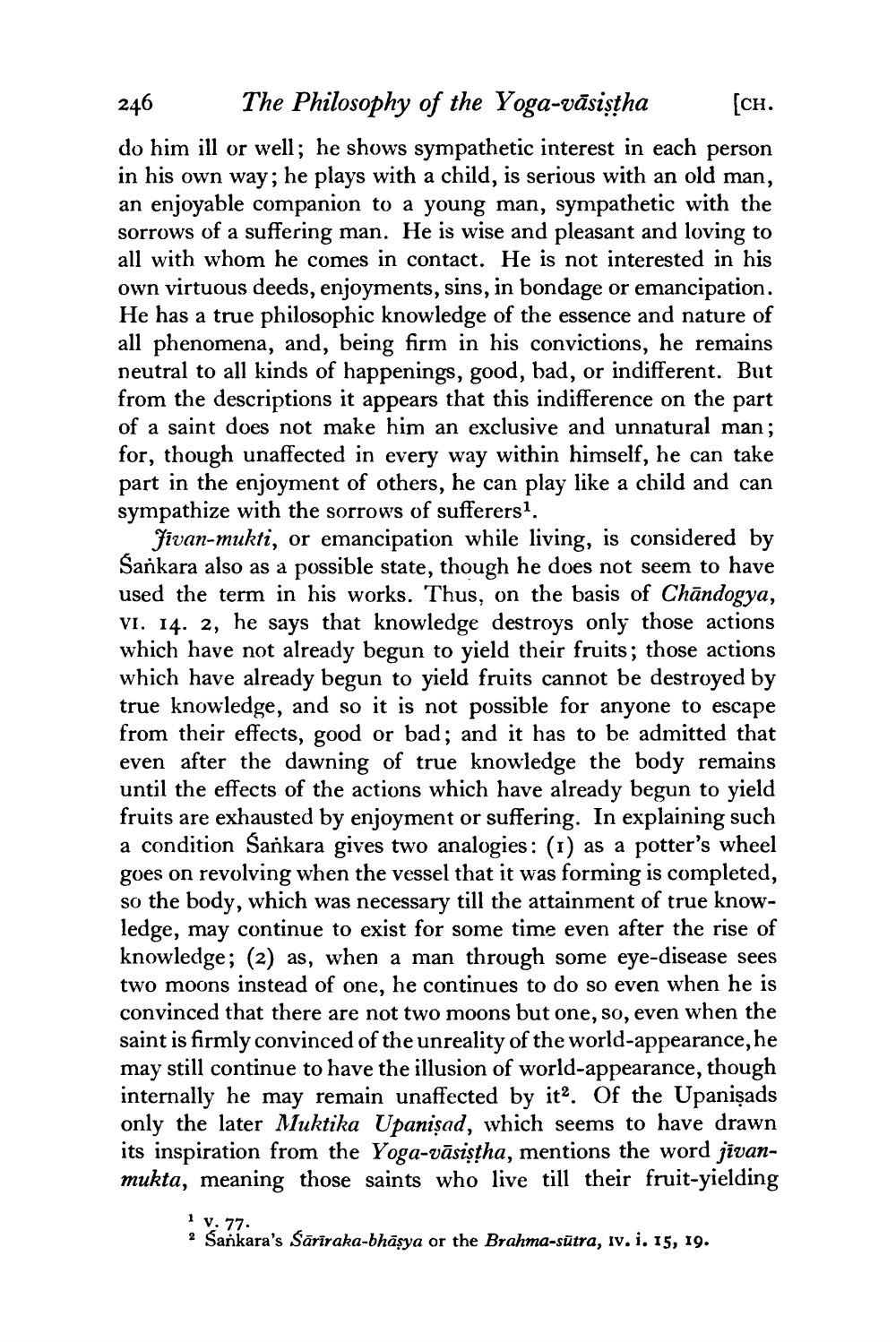________________
246
The Philosophy of the Yoga-vasiṣṭha
[CH.
do him ill or well; he shows sympathetic interest in each person in his own way; he plays with a child, is serious with an old man, an enjoyable companion to a young man, sympathetic with the sorrows of a suffering man. He is wise and pleasant and loving to all with whom he comes in contact. He is not interested in his own virtuous deeds, enjoyments, sins, in bondage or emancipation. He has a true philosophic knowledge of the essence and nature of all phenomena, and, being firm in his convictions, he remains neutral to all kinds of happenings, good, bad, or indifferent. But from the descriptions it appears that this indifference on the part of a saint does not make him an exclusive and unnatural man; for, though unaffected in every way within himself, he can take part in the enjoyment of others, he can play like a child and can sympathize with the sorrows of sufferers1.
Jivan-mukti, or emancipation while living, is considered by Sankara also as a possible state, though he does not seem to have used the term in his works. Thus, on the basis of Chandogya, VI. 14. 2, he says that knowledge destroys only those actions which have not already begun to yield their fruits; those actions which have already begun to yield fruits cannot be destroyed by true knowledge, and so it is not possible for anyone to escape from their effects, good or bad; and it has to be admitted that even after the dawning of true knowledge the body remains until the effects of the actions which have already begun to yield fruits are exhausted by enjoyment or suffering. In explaining such a condition Sankara gives two analogies: (1) as a potter's wheel goes on revolving when the vessel that it was forming is completed, so the body, which was necessary till the attainment of true knowledge, may continue to exist for some time even after the rise of knowledge; (2) as, when a man through some eye-disease sees two moons instead of one, he continues to do so even when he is convinced that there are not two moons but one, so, even when the saint is firmly convinced of the unreality of the world-appearance, he still continue to have the illusion of world-appearance, though internally he may remain unaffected by it2. Of the Upanisads only the later Muktika Upanisad, which seems to have drawn its inspiration from the Yoga-vāsiṣṭha, mentions the word jivanmukta, meaning those saints who live till their fruit-yielding
may
1 V. 77.
2 Sankara's Sārīraka-bhāṣya or the Brahma-sutra, Iv. i. 15, 19.




